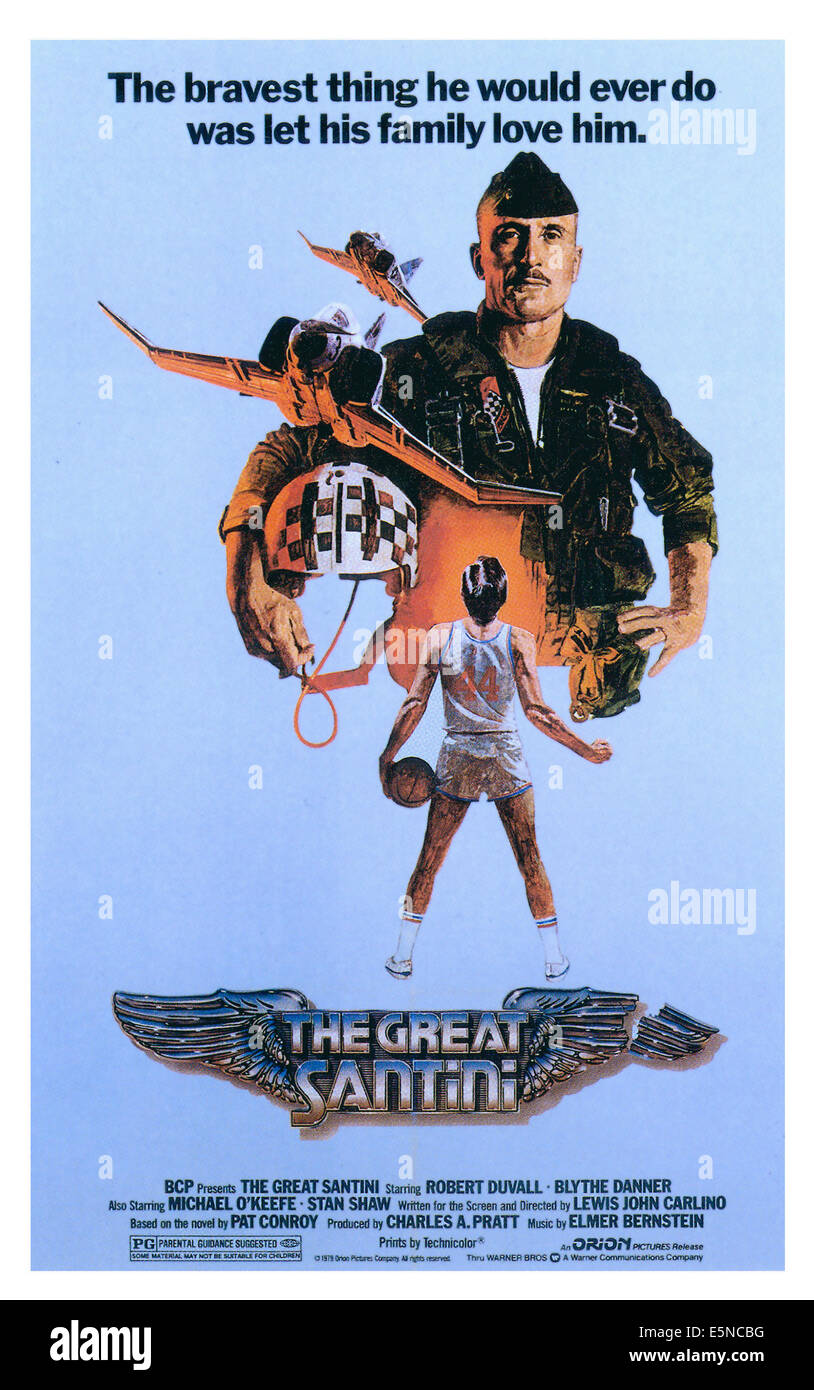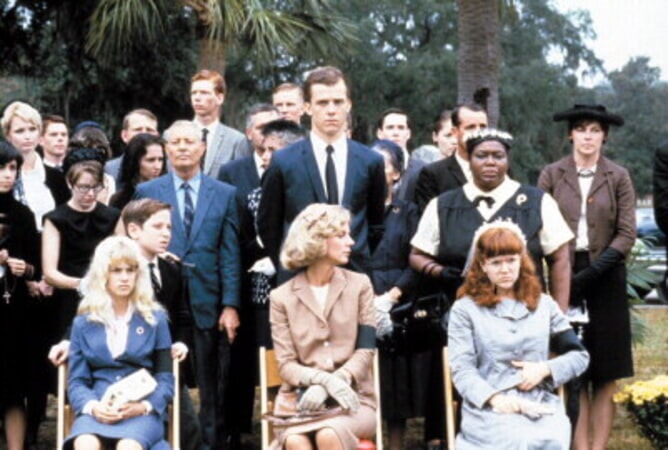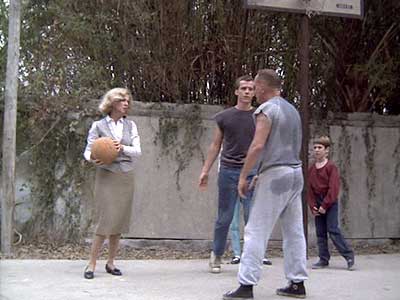← Back to Reviews
in
The Great Santini
The iconic Robert Duvall received the third of his seven career Oscar nominations for his powerhouse performance in 1979's The Great Santini, an often compelling family drama that provides moments of high drama but cops out during the final act,

Duvall plays Colonel "Bull" Meacham, a career marine army fighter pilot who, as the film begins, is starting a new assignment, moving his wife and four children out of their home at 3:00 in the morning. The story slowly reveals that Meacham is an abusive control freak who treats his family like soldiers. His treatment has had the most profound effect on his eldest son, Ben, whose resentment of his father has caused him to act out in myriad ways.

Director and screenwriter Lewis John Carlino adapted the screenplay from a novel by Pat Conroy, that efficiently establishes the kind of man this Bull Meacham is and establishes almost immediate sympathy for his family. Carlino's screenplay manages to set us up, initially making Meacham a likable guy with a sense of humor, but before we even realize it, we see him referring to his kids as "hogs". bullying Ben on the basketball court, and ignoring older daughter, Mary Anne,

This is where Carlino really scores, presenting an abusive central character who is abusive in more ways than one. We see the expected physical and psychological abusive that we've seen in other films. We get to see another kind of abuse here in one of my favorite scenes in the film, where daughter Mary Anne, is just trying to get her father to pay attention to her for five minutes, rambling on and on about anything shocking and improper enough to get a rise out of her father, but to no avail. We get to see two totally different kinds of abuse here and I'm not so sure which was worse. There's also a subplot involving the stuttering son of the family maid, that just seemed to pad running time and cloud the film's initially promising premise.

Carlino also has assembled a solid supporting cast behind Duvall to serve his story. Blythe Danner, an actress incapable of giving a bad performance, offers one of her stronger turns as Duvall's wife, and Michael O'Keefe's Ben earned him Oscar and Golden Globe nominations. I was also very impressed by a terrific performance from a young Lisa Jane Persky as Mary Anne. Other familiar faces that pop up along the way include Stan Shaw, Paul Gleason, Theresa Merritt, and David Keith. The film gets an "A" for effort, beginning what could have been a fascinating drama; unfortunately, this story lets Colonel Meacham off way too easy.
The iconic Robert Duvall received the third of his seven career Oscar nominations for his powerhouse performance in 1979's The Great Santini, an often compelling family drama that provides moments of high drama but cops out during the final act,

Duvall plays Colonel "Bull" Meacham, a career marine army fighter pilot who, as the film begins, is starting a new assignment, moving his wife and four children out of their home at 3:00 in the morning. The story slowly reveals that Meacham is an abusive control freak who treats his family like soldiers. His treatment has had the most profound effect on his eldest son, Ben, whose resentment of his father has caused him to act out in myriad ways.

Director and screenwriter Lewis John Carlino adapted the screenplay from a novel by Pat Conroy, that efficiently establishes the kind of man this Bull Meacham is and establishes almost immediate sympathy for his family. Carlino's screenplay manages to set us up, initially making Meacham a likable guy with a sense of humor, but before we even realize it, we see him referring to his kids as "hogs". bullying Ben on the basketball court, and ignoring older daughter, Mary Anne,

This is where Carlino really scores, presenting an abusive central character who is abusive in more ways than one. We see the expected physical and psychological abusive that we've seen in other films. We get to see another kind of abuse here in one of my favorite scenes in the film, where daughter Mary Anne, is just trying to get her father to pay attention to her for five minutes, rambling on and on about anything shocking and improper enough to get a rise out of her father, but to no avail. We get to see two totally different kinds of abuse here and I'm not so sure which was worse. There's also a subplot involving the stuttering son of the family maid, that just seemed to pad running time and cloud the film's initially promising premise.

Carlino also has assembled a solid supporting cast behind Duvall to serve his story. Blythe Danner, an actress incapable of giving a bad performance, offers one of her stronger turns as Duvall's wife, and Michael O'Keefe's Ben earned him Oscar and Golden Globe nominations. I was also very impressed by a terrific performance from a young Lisa Jane Persky as Mary Anne. Other familiar faces that pop up along the way include Stan Shaw, Paul Gleason, Theresa Merritt, and David Keith. The film gets an "A" for effort, beginning what could have been a fascinating drama; unfortunately, this story lets Colonel Meacham off way too easy.
